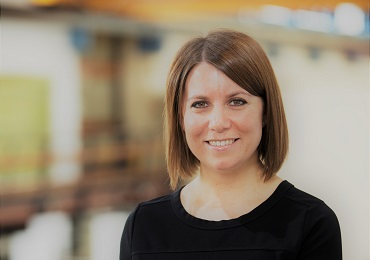Our Interim Associate Director for Equality, Diversity and Inclusion, David Bass, introduces a blog series which explores new aspects of the transformed UK Athena Swan Charter.
“We’ve worked with our members to transform the UK Athena Swan Charter and ensure it is streamlined, developmental and supportive. Building on and reflecting the recommendations of the independent review of the charter, we have incorporated four major themes. These are: the consideration of intersectionality; a more inclusive approach to 'gender as a spectrum'; a new, standalone application form especially for professional, technical and operational staff and a brand-new Culture Survey for university departments.
We asked experts in each topic to explore these issues in a thought-piece from an intellectual, academic, ethical or sociological perspective to encourage conversations within the sector."
David Bass, Interim Associate Director, EDI, Advance HE
Kelly Vere, Director of Technical Skills & Strategy, University of Nottingham
Kelly Vere MBE is the Director of Technical Skills & Strategy at the University of Nottingham where she began her career as a junior medical technician in 1999. She founded and leads the Technician Commitment, a sector wide initiative to ensure visibility, recognition, career development and sustainability for the technical community across higher education and research.

Last week saw the launch of the transformed UK Athena Swan Charter. The new Charter builds on the successes that the Athena Swan Charter has already had in promoting gender equality in higher education and research.
The Athena Swan Charter was established in 2005 with the aim of advancing gender equality for women in STEMM academic roles in academia. Over the past 16 years there has undoubtedly been an increase in the understanding of the challenges that women in academic careers face. This is fantastic, and whilst there is still much to do, and much more progress to be made, the awareness of these challenges has certainly grown. But we must remember that our universities and research institutes are not just made up of academic and research staff. Our academic colleagues are supported and enabled by a diverse, skilled community of professional, technical, and operational (PTO) roles, all fundamental to the success of our institutions. And gender equality matters for them too.

PTO colleagues make vital contributions to our universities and research institutes. Their skills and expertise enable teaching and learning, research, innovation and discovery. Whilst initiatives and interventions to advance gender equality for the academic community are undeniably essential, it is vital to appreciate that issues regarding equality, diversity and inclusion (EDI) do not just apply to academic and research staff groups. Indeed, it is arguable that the issues can be more serious in the PTO staff communities where knowledge and understanding of EDI challenges is often not as advanced.
There is emerging understanding of these challenges in the technical community but limited knowledge and insight in the professional and operational staff groups.
Recent work by the EPSRC funded STEMM-CHANGE project, in partnership with the Technician Commitment explored equality, diversity and inclusion in the technical community and found a lack of women technicians in physics and engineering and high numbers of women technicians in biosciences, medicine and veterinary science. Where there are higher numbers of women technicians, there are still low numbers of women in technical management and leadership positions, suggesting that women technicians are either not applying for, or are unsuccessful in being recruited into technical management and leadership roles. Other issues highlighted included a significant drop off in women technicians at the age of 30 and a lack of practical considerations for women working in area traditionally dominated by men. For example – women technicians working in engineering and physics reported a lack of changing facilities and said that it was often difficult to get basic safety PPE and footwear in appropriate sizing. The research raised awareness and interventions are now being put in place to address the challenges identified – for example, Midlands Innovation’s Research England funded TALENT programme is developing the first leadership programme for women in technical roles. Understanding the issues is the first step to action.
Some of the professional associations and networks representing PTO staff are looking into this – for example, the Association of Research Managers and Administrators (ARMA) have been undertaking work to understand the protected characteristics of their members and the Association of University Administrators (AUA) are analysing membership data and have established an EDI forum where members can share ideas and best practice.
The research highlighted on the technical community was undertaken through qualitative workshops and through secondary analysis of HESA data. Data on PTO roles is limited and worryingly, from 2019/20, the requirement to include PTO staff data in HESA institutional staff returns was removed, a further barrier to generating understanding of these vital communities.
We need more insight, knowledge and understanding of the challenges within our PTO communities and we need to stimulate action to address them. Therefore, it is fundamentally important that the transformed UK Athena Swan Charter is fully inclusive of our PTO colleagues.
In December 2020, I was delighted to be asked to chair the Athena Swan Professional, Technical and Operational Staff Sub-Group. The group, with representatives from the academic and PTO communities have met regularly since January. Our aim was to ensure that the transformed UK Athena Swan Charter is fully inclusive of PTO staff – at all levels and across all disciplines. It was critical for us that the inclusion of PTO staff was not a tokenistic add-on and that PTO staff are fully embedded into the transformed UK Athena Swan Charter.
The transformed Charter now asks institutions to include and consider all staff, both academic and PTO in their submissions. Academic department submissions also include PTO staff where they are based in their structure. And for the first time, there is the option for PTO directorates to apply for their own Athena Swan Charter Award.
Gender equality is important for all staff working in academia and research. It’s vital that we recognise all roles within our institutions and work collectively to advance a positive culture that supports professional development and progression for all colleagues – regardless of job title.